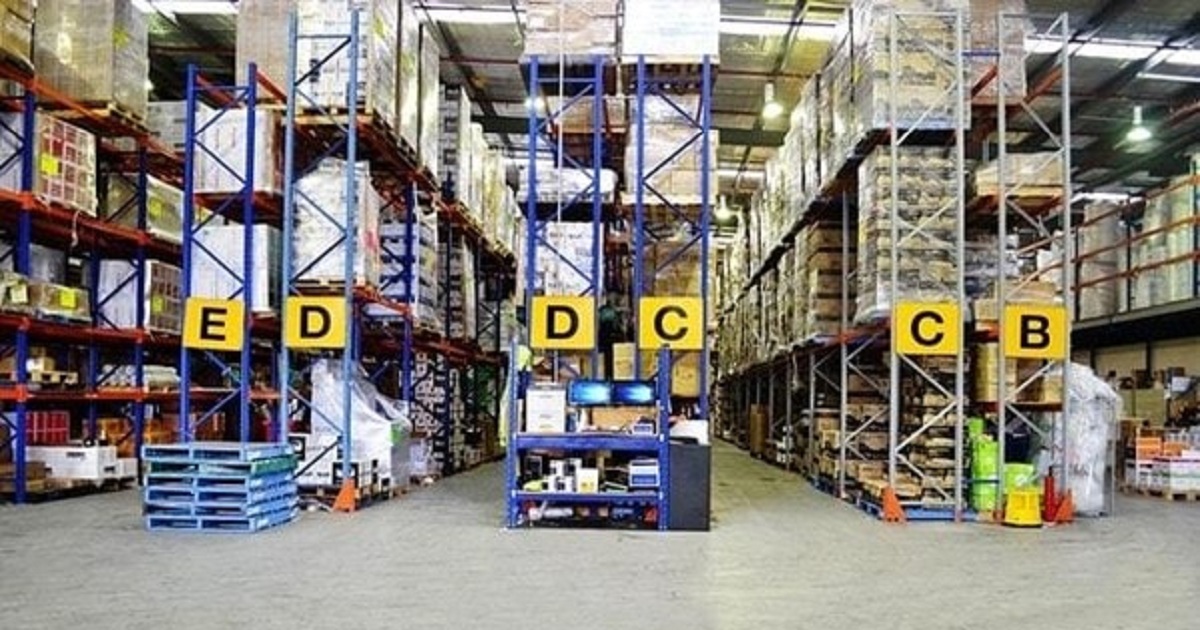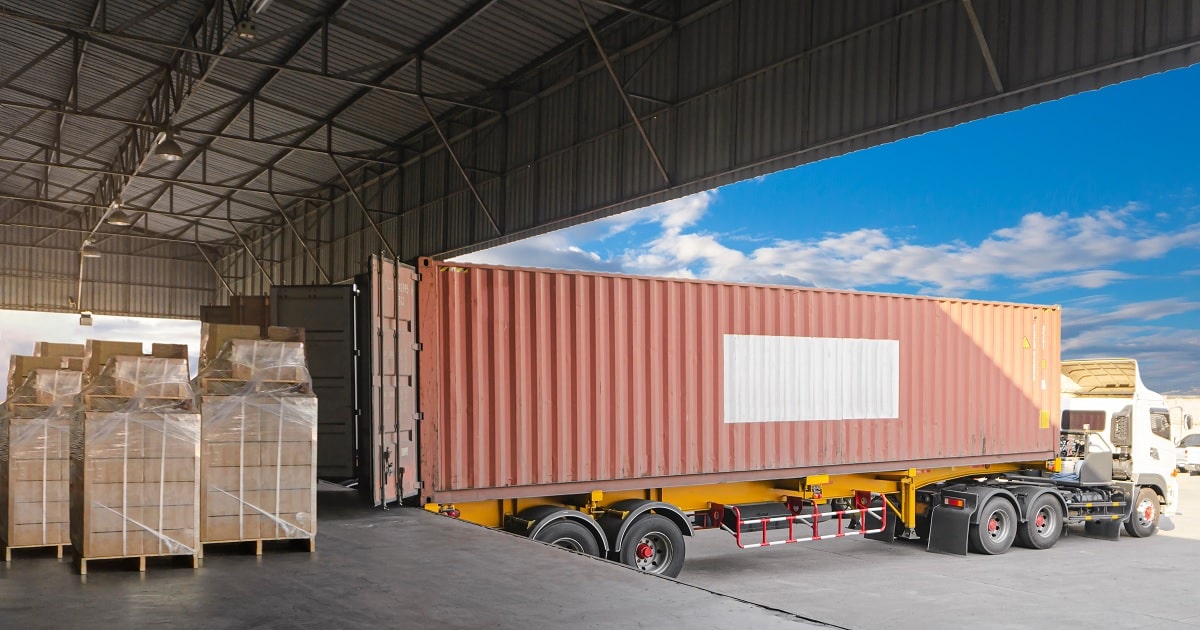
Warehousing and Distribution
Article | July 11, 2023
Innovations such as AI and automation have been tipped to kickstart the Fourth Revolution. While the technology is being widely adopted, it is constantly evolving. Therefore, there is uncertainty surrounding its overall impact, particularly on professional roles within the supply chain. Some fear that the technology will replace its human counterparts, while other experts suggest it will work in unison with humans, supporting them to focus on higher value opportunities. Amidst all of this uncertainty one thing is for certain: AI and automation will change how we operate.
Read More

Warehousing and Distribution
Article | June 27, 2023
Unlock operational efficiency and deliver exceptional customer service with a WMS. Learn how cloud-based WMS improves control, enhances customer service, and prepares businesses to develop & succeed.
Contents
1. Importance of Warehouse Management Systems
2. How Warehouse Management Systems Optimize Operations
2.1. Productivity Tracking
2.2. Inventory Control
2.3. Labor Management System
2.4. Slotting
2.5. Batching Logic
3. Essential Warehouse Operations Procedures
3.1. Inbound Logistics Process
3.2. Outbound Logistics Process
5. Conclusion
1. Importance of Warehouse Management Systems
A warehouse management system (WMS) is essential for optimizing warehouse operations and delivering exceptional customer service. There are five compelling reasons to consider implementing a WMS. Firstly, it enhances inventory control and management by reducing inventory levels, improving order fulfillment, and increasing accuracy. Secondly, it improves customer service and tracking through improved picking accuracy and automated shipment organization. Thirdly, a WMS boosts company productivity by adding warehouse efficiency and quality control to the fulfillment process. Fourthly, it provides a significant return on investment by improving sales accuracy, reducing errors, providing safe warehouse and simplifying customer support. Lastly, a good WMS integrates seamlessly with existing business management systems and adapts to evolving needs. Additionally, WMS enables businesses to meet compliance regulations through real-time data recording, enhanced business intelligence, and process automation.
2. How Warehouse Management Systems Optimize Operations
2.1. Productivity Tracking
Warehouse management systems (WMS) are crucial in optimizing operations by providing comprehensive productivity tracking tools. These systems capture and analyze key performance indicators (KPIs) such as order fulfillment rates, picking accuracy, and labor productivity. Organizations can identify bottlenecks, allocate resources effectively, and implement process improvements by tracking these metrics in real-time and generating insightful reports. With WMS productivity tracking, businesses gain a clear understanding of their operational efficiency and can make data-driven decisions to enhance overall performance.
2.2. Inventory Control
Efficient inventory control is essential for logistics warehouse management, and WMS solutions excel in this aspect. WMS provides real-time visibility into inventory levels, locations, and movements. Businesses can accurately track stock levels, monitor expiration dates, and implement automated replenishment warehouse processes. With advanced features like cycle counting and stock level alerts, WMS ensures inventory accuracy and reduces carrying costs. By optimizing inventory control, businesses can avoid stockouts, minimize excess stock, and improve order fulfillment rates, enhancing customer satisfaction.
2.3. Labor Management System
WMS incorporates a robust labor management system that enables businesses to allocate and manage their workforce effectively. These systems provide tools for labor planning, task allocation, and performance tracking. WMS optimizes labor allocation by assigning tasks based on employee skills, availability, and workload. By monitoring labor productivity and efficiency, businesses can identify opportunities for improvement and implement training programs to enhance employee
performance. With WMS labor management capabilities, organizations optimize labor costs, minimize overtime, and improve overall operational efficiency.
2.4. Slotting
Strategic slotting is a critical component of warehouse optimization, and WMS offers advanced slotting capabilities. By analyzing data on product demand, turnover rates, and order frequency, WMS determines the optimal locations for different products within the warehouse. Efficient slotting reduces travel time, minimizes congestion, and streamlines order picking. WMS enables businesses to assign appropriate storage locations based on product size, weight, and velocity. By optimizing slotting strategies, organizations can significantly enhance picking efficiency, reduce errors, and improve overall warehouse productivity.
2.5. Batching Logic
Batching logic is a key feature of WMS that enhances order-picking efficiency. WMS intelligently groups multiple orders with similar product requirements, locations, or delivery routes. By consolidating these orders into batches, the system enables batch picking, where a picker can fulfill multiple orders in a single trip through the warehouse. Batching logic reduces travel time, minimizes labor costs, and increases order picking speed. By maximizing picking efficiency, businesses can improve order fulfillment rates, reduce order cycle time, and meet customer expectations effectively.
3. Essential Warehouse Operations Procedures
A robust distribution center network serves as the backbone of operations, transforming raw materials into finished products and ensuring their timely delivery to customers. To gain a comprehensive view of logistics network and improve supply chain visibility, it's crucial to understand the distinction between inbound and outbound logistics.
3.1. Inbound Logistics Process
Inbound logistics encompasses the services required to bring materials and goods into businesses. This includes transportation, storage, and delivery processes. With the help of warehouse management systems (WMS), purchasing can be streamlined by synchronizing vendor details and inventory control levels. WMS allows efficient receipt scanning and guides warehouse staff to shelve items accurately. It also recommends optimal put-away, slotting, and storage space utilization techniques. Additionally, WMS facilitates reverse logistics by providing real-time information on product availability, enabling timely restocking and preventing stockouts.
3.2. Outbound Logistics Process
Outbound logistics focuses on the storage, transportation, and delivery systems that ensures finished products reach their final destination. WMS plays a vital role in this process as well. It enables accurate order picking through barcode or RFID scanners, reducing errors and ensuring the right products are chosen. Warehouse management processes integrated with WMS can automate product packaging, allowing for differentiation across sizes and optimizing packaging channels. Moreover, WMS simplifies printing shipping labels, price tags, logos, and other necessary documentation, eliminating manual data input and reducing human errors. WMS enhances the overall customer experience and minimizes fulfillment errors by ensuring timely delivery and notifying customers.
4. Implementing Cloud Warehouse Management Systems to improve productivity
Using a cloud-based warehouse management system offers several advantages for businesses looking to optimize their inventory control and streamline operations in complex distribution environments. Cloud supply chain management solutions provide benefits like multi-warehouse tracking, sales forecasting, and on-time delivery. Here are three key benefits of implementing a cloud WMS:
Increased control over business growth: Cloud-based WMS provides real-time visibility into inventory, allowing businesses to manage operations and make informed decisions efficiently. With automatic updates and centralized access, stakeholders can access relevant information anytime, enabling better control over business growth and flexibility to adapt to changing market demands.
Improved customer service: A cloud WMS empowers teams to track shipments, update arrival dates, and effectively manage the supply chain. It enables seamless communication and collaboration across the organization, ensuring timely deliveries and enhancing customer satisfaction. Efficiently conveying information leads to better customer service and a competitive edge.
Preparedness for upcoming changes: Cloud WMS offers an affordable and scalable warehousing solution. With cloud computing, businesses can easily adjust resources to meet fluctuating demands and seasonal changes. The ‘self-service’ access to WMS applications in the cloud allows for increased agility and quick adaptation to evolving business needs. Unlike traditional self-hosted systems, cloud WMS eliminates the need for upfront hardware investments and provides seamless scalability.
5. Conclusion
In the rapidly evolving business landscape, a warehouse management system (WMS) holds immense importance for organizations aiming to optimize their operations. As we look to the future, the role of WMS becomes even more crucial. With advancements in technology and the advent of new platforms, a cloud-based WMS offers unparalleled integration possibilities. By harnessing the power of cloud supply chain planning systems, businesses can gain better control over their inventory and navigate the complexities of modern distribution environments. The benefits are significant: increased control over business growth, improved customer service through real-time tracking, and preparedness for upcoming changes. By embracing cloud, WMS empowers businesses to stay agile, enhance productivity, and drive sustainable success in the dynamic business landscape of the future.
Read More

Transportation
Article | April 26, 2023
Labor costs, on an average, constitute more than 65% of the expenses for a warehouse. It is a best practice to review the operation of your warehouse before implementing automation, but it also has a significant impact on production and operational efficiency. The processes in a disarrayed warehouse cannot easily be automated as automation heavily relies on warehouse layout optimization, as well as standardized processes and procedures.
Read More

Software and Technology, Supply Chain
Article | August 3, 2022
In the past couple of years, supply chain management has witnessed massive disruption. The implications of the pandemic have put pressure on manufacturers to revisit and reimagine how they manage their supply chains. This is why ERP software is so mission critical in supply chain management. It not only helps supply chain chiefs reduce overhead costs but also enhance efficiencies and timely deliveries.Here are a few ways ERP plays a role in supply chain management to keep it moving.
Complete Visibility
Having a 360-degree view of the supply chain is integral to making the right decisions regarding procurement and purchase of materials and inventory. It also allows suppliers to have complete control and course correct when necessary. The insight into the complete supply cycle allows suppliers to respond to customer queries better.
Inventory Tracking
ERPs are truly a one stop shop for manufacturers. They feature extensive inventory tracking on one system so manufacturers are in the loop about inventory control and can better optimize their inventory and resources. For manufacturers it is crucial to know where their inventory is, what has been shipped, what is on hand at all times. With ERPs, it becomes cheaper to keep a stock of the inventory and place orders when it’s running low.
Vendor Performance
Vendor performance is an essential aspect of supply chain management. Being able to compare vendors, measure certain quality and quantity metrics and identify bottle necks help suppliers choose the right vendor as well as gives purchasing departments the power to negotiate for better pricing by consolidating purchase. ERPs allow suppliers to do all the above and more.
Procurement
Procurement of goods can be a complex process if done without the right tools. It also impacts the whole supply chain so it is doubly imperative to ensure the procuring and supply of goods is on time. This is especially true in an environment of custom manufacturing. Add to that the requirement of procuring products with lengthy lead times, manufacturers need to take into considerations product that need to be ordered long before they are even designed. ERPs allow manufacturers to keep all departments including engineering and warehousing to work in sync and plan to procure goods on time.
Real-time Reports
Reporting is labor intensive and can be inefficient when it comes to gathering and processing data. With ERPs, manufacturers can generate reports in real-time and all manual data collection processes are replaced with automation, saving time and money in viewing the insights into the movement of products in the supply chain. It enables manufacturers to get a better understanding and make timely decisions that improve the overall efficiency of the supply chain.
To Conclude
ERP systems offer endless opportunities for manufacturers to improve their processes, save time and resources and optimize and enhance inventory planning. With the right tools, it is possible to establish supply chain management that outperforms and is resilient even in disruptive times.
Read More